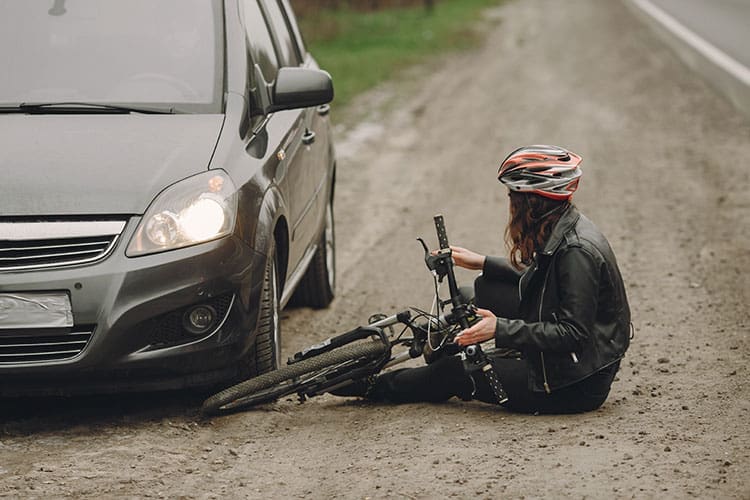Cycling can be a delightful experience, allowing one to explore neighborhoods and enjoy the outdoors. However, the thrill can swiftly turn into a nightmare if involved in an accident with a vehicle. Understanding what steps to take post-collision is crucial not only for your well-being but also for protecting your legal rights. Being informed can help reduce panic during a high-stress situation and facilitate proper action.
Stay Calm and Assess the Situation
Your immediate reaction after a collision is pivotal. You must be reeling from the pain and confused by the suddenness of the event. However, you need to keep your wits about you and look at the situation objectively. Take a deep breath and start by assessing your physical condition. If you are conscious and able to move, check for injuries; however, avoid moving too much, especially if you suspect serious injuries. Your well-being should come first. If you feel severe pain or are disoriented, stay still and await help. Call 911 if you are in the position to do so or ask a bystander for assistance.
Get to Safety
If it’s safe and you can do so, move your bicycle and yourself to a secure location away from traffic. This action minimizes the risk of further injury from additional accidents. Alert other cyclists and drivers to the situation as you attempt to secure a safe spot. This procedure not only aids in your safety but also creates a safe environment for emergency responders. Even if you feel fine, it’s imperative to prioritize safety first.
Document the Scene
Once you are safely out of harm’s way, document the incident thoroughly. Use your smartphone to take pictures of your bicycle, the vehicle involved, and the surrounding area. Ensure you capture any visible damages or injuries as evidence. Note the time and location of the incident, as well as any witness information. Having a detailed account can prove invaluable when discussing the incident with law enforcement or legal representatives.
Seek Medical Attention
Regardless of whether you feel injured, it’s essential to undergo a medical examination. Some injuries, such as concussions or internal injuries, may not manifest immediately. A medical professional can provide a thorough evaluation and document your injuries for future reference. This documentation is crucial not only for your health but also if you need to file a claim later. Furthermore, thorough medical records become an essential component when negotiating with insurance or pursuing legal action.
File a Police Report
Contact law enforcement to report the accident. A police report serves as an official record of the incident and can be vital for insurance claims or legal action. They will assess the scene, gather statements from all parties involved, and create an official report. Ensure you get a copy or the report number for your records. This official documentation often carries significant weight in establishing fault and determining liability.
Consult Legal Experts
After ensuring your safety and taking the necessary steps, consider seeking legal counsel. The legal team at Terry Law Firm strongly advises consulting with a personal injury attorney who understands bicycle accident claims, as they can help navigate the process efficiently. Lawyers from establishments with a diverse team of legal experts can provide valuable insight regarding your rights and the complexities of local laws. They can help ensure you receive all eligible compensation for medical bills, lost wages, or pain and suffering.
Notify Your Insurance Company
Reaching out to your insurance company promptly is essential. They need to be informed of the situation as soon as possible. Provide them with all necessary details, including the police report number, to initiate a claim. Even if you were not at fault, notifying your insurance provider can help facilitate any required medical treatments or costs associated with your accident. Avoid discussing liability with them, as this may complicate matters later.
Keep Records of Medical Treatments
Throughout your recovery process, meticulously keep records of all medical treatments and associated costs. Document any doctor visits, therapy sessions, medication prescribed, and other related expenses. These records can become essential pieces of evidence should your case escalate into a legal dispute. Transparency and thorough documentation also aid in negotiating settlements with insurance companies. This meticulous approach ensures you are prepared for any discussions about compensation.
Understand Your Rights
Being informed about your rights as a cyclist is crucial post-accident. Familiarize yourself with local and state laws regarding bicycle accidents and arm yourself with knowledge about what to expect from insurance and legal systems. Understanding comparative fault laws, for example, helps navigate liability discussions. Being proactive in this area can reduce stress and fortify your position as the case progresses.
Follow Up on Your Recovery
Your recovery process should remain a priority. Ensure regular follow-up appointments with your healthcare provider and adhere strictly to their advice. Engaging in rehabilitation or attending therapy sessions can significantly accelerate the recovery process. This not only aids in your physical healing but also conveys proactive steps in documenting your commitment to recovery for any potential claims.

In the event of a cycling accident, the aftermath can be overwhelming. However, knowing these crucial steps can aid in protecting your health and securing your rights. Taking intentional, informed actions can facilitate recovery and lead to appropriate compensation for injuries sustained. Understanding and understanding the legal process can have a lasting impact on your situation, guiding you through the complexities that follow.













